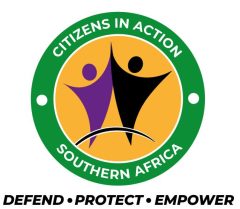The organization has been established by a group of women activists coming together in recognition and belief that the organization can make a significant and positive impact in Southern Africa and beyond the region. The CIASA formation was therefore meant to tackle important issues at a scale where it can achieve significant and measurable impacts. The organizations ability to take risks and make long-term and relatively large commitments should allow it to undertake challenges not accessible to many other organizations. This is against the realization that marginalized women and girls are being left behind in the development discourse of several Southern African countries.
CIASA seeks durable change, thus CIASA, is a specialized organization which was established as one of the major outcomes of the baseline, needs assessment and research conducted across Southern Africa. The research was organized in response to the solidarity and movement building crisis ailing countries in addressing national crisis especially around lack of proper democratic and economic governance, barriers in accessing comprehensive SRHR integrated with Sexual Gender Based Violence (SGBV) and women exclusion in natural resources governance in the turn of the millennium that primarily affected countries in Southern Africa. The research recommended that an organization should be established immediately to providing training oversight and think tanking around women and girl child related interest to climate change implications, child protection, environmental sustainability and democratic and economic governance.
Most low income developing countries in Southern Africa are characterised with low living standards which is threatening social harmony for women especially those in hard to reach areas. Despite the global efforts to end poverty through the Sustainable Development Goals, living standards have gotten worse for many women in African countries. For instance in Zimbabwe, the breadbasket has increased against extreme poverty for women despite the fact that the country is well endowed with natural resources such as minerals, and fertile land. The rich are getting richer given the opaqueness of the economy and the economic privileges created by political patronage. Worse still, inequalities on income and access to social services has been widened by Covid-19 with those poor not accessing such services as SRHR and education for a girl child, leaving the women and children vulnerable. Differential access to natural resources has widened the disparity between the elites and those who are wallowing in deep poverty with women being the most vulnerable groups. Zimbabwe amongst other African countries is now characterised by perennial labour disputes and industrial actions due to concerns over the welfare of the public service labour force which is largely constituted by women. From a feminist perspective, the provision of water, sanitation, health, education and other social services remain significantly poor, making it difficult for women to perform their caregiving role.
Exacerbated by COVID19 pandemic, poverty remains a daunting challenge in many African countries despite the fact that poverty reduction is at the priority list in national, continental and global development plans. Over the past decade, poverty levels are at unprecedented levels with urban poverty now widespread. Access to basic social services such as water and sanitation, health and education have turned out from being a right into a privilege in both rural and urban areas. The organization is a non-political and non-profit making non-governmental organization formed by young women activities with particular focus on marginalized women and girl child. This movement targets marginalized women and girls as heterogenous groups, in lobby and advocacy; influencing the policies as it relates to the rights of women and girls in their diversity and advance the rights-based approach to women and girl child development through well-thought citizens driven and led constitutional reforms premised under the pinnacles of transparency, accountability and good governance. The Citizen in Action Southern Africa is there to create and facilitate space for marginalized women and girls to have a collective voice to challenge oppressive systems and structural barriers and in turn effectively participate in key decision-making processes across the cultural, political, social, environmental, technological and economic spectrum.
